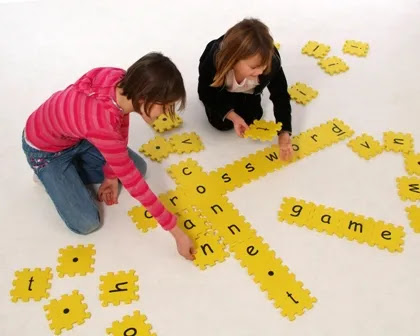Words
forms are the different ways a word can exist in the context of a language.
Many words exist as nouns, verbs or adjectives and change when prefixes or
suffixes are added.
For
example, the words beautify, beautiful and beautifully are the verb, adjective
and adverb forms of the noun beauty, but they are not interchangeable when used
in a sentence.
The ‘Word
Formation Process’ has a significant role in expanding the vocabulary that
helps us communicate very smoothly. The main objectives of the word-formation
process are to form new words with the same root by deploying different rules
or processes.
In other
words, we can say that the word-formation process is a process in which new
words are formed by modifying the existing terms or completely changing those
words.
There are
four main kinds of word formation: prefixes, suffixes, conversion and compounds.
Prefixes
We add prefixes before
the base or stem of a word.
|
examples |
prefixes |
|
monorail, monolingual |
mono- means ‘one’ |
|
multipurpose, multicultural |
multi- means ‘many’ |
|
post-war, postgraduate |
post- means ‘after’ |
|
unusual, undemocratic |
un- means ‘not’ or ‘opposite to’ |
The most common
prefixes
|
prefix |
meaning |
examples |
|
anti- |
against/opposed to |
anti-government,
anti-racist, anti-war |
|
auto- |
self |
autobiography,
automobile |
|
de- |
reverse or change |
de-classify,
decontaminate, demotivate |
|
dis- |
reverse or remove |
disagree,
displeasure, disqualify |
|
down- |
reduce or lower |
downgrade,
downhearted |
|
extra- |
beyond |
extraordinary,
extraterrestrial |
|
hyper- |
extreme |
hyperactive,
hypertension |
|
il-,
im-, in-, ir- |
not |
illegal,
impossible, insecure, irregular |
|
inter- |
between |
interactive,
international |
|
mega- |
very big, important |
|
|
mid- |
middle |
midday,
midnight, mid-October |
|
mis- |
incorrectly, badly |
misaligned,
mislead, misspelt |
|
non- |
not |
non-payment,
non-smoking |
|
over- |
too much |
overcook,
overcharge, overrate |
|
out- |
go beyond |
outdo,
out-perform, outrun |
|
post- |
after |
post-election,
post-war |
|
pre- |
before |
prehistoric,
pre-war |
|
pro- |
in favour of |
pro-communist,
pro-democracy |
|
re- |
again |
reconsider,
redo, rewrite |
|
semi- |
half |
semicircle,
semi-retired |
|
sub- |
under, below |
submarine,
sub-Saharan |
|
super- |
above, beyond |
super-hero,
supermodel |
|
tele- |
at a distance |
television,
telepathic |
|
trans- |
across |
transatlantic,
transfer |
|
ultra- |
extremely |
ultra-compact,
ultrasound |
|
un- |
remove, reverse,
not |
undo,
unpack, unhappy |
|
under- |
less than, beneath |
undercook,
underestimate |
|
up- |
make or move higher |
upgrade,
uphill |
Suffixes
We add suffixes after
the base or stem of a word. The main purpose of a suffix is to show what class
of word it is (e.g. noun or adjective).
|
examples |
suffixes |
|
terrorism, sexism |
-ism and -dom are used to
form nouns |
|
employer, actor |
-er and -or are used to
form nouns to describe people who do things |
|
widen,
simplify |
-en and -ify are used to
form verbs |
|
reasonable,
unprofitable |
-able is used to form adjectives |
|
unhappily,
naturally |
-ly is a common suffix used to form
adverbs |
Suffixes:
spelling
Often, the suffix
causes a spelling change to the original word. In the table above, the -e ending
of complicate and create disappears when the
-ion suffix is added. Other examples of spelling changes include:
beauty, duty + -ful →
beautiful, dutiful (-y changes to i)
heavy, ready + -ness →
heaviness, readiness (-y changes to i)
able,
possible + -ity → ability, possibility (-le changes to il)
permit, omit + -ion → permission, omission (-t changes to ss)
Common
suffixes and examples
Noun suffixes
|
suffix |
examples
of nouns |
|
-age |
baggage, village,
postage |
|
-al |
arrival,
burial, deferral |
|
-ance/-ence |
reliance,
defence, insistence |
|
-dom |
boredom,
freedom, kingdom |
|
-ee |
employee,
payee, trainee |
|
-er/-or |
driver,
writer, director |
|
-hood |
brotherhood,
childhood, neighbourhood |
|
-ism |
|
|
-ist |
capitalist,
Marxist, socialist (followers
of philosophies) |
|
-ity/-ty |
brutality,
equality, cruelty |
|
-ment |
amazement,
disappointment, parliament |
|
-ness |
happiness,
kindness, usefulness |
|
-ry |
entry,
ministry, robbery |
|
-ship |
friendship,
membership, workmanship |
|
-sion/-tion/-xion |
expression,
population, complexion |
Adjective suffixes
|
suffix |
examples
of adjectives |
|
-able/-ible |
drinkable,
portable, flexible |
|
-al |
brutal,
formal, postal |
|
-en |
broken,
golden, wooden |
|
-ese |
Chinese,
Japanese, Vietnamese |
|
-ful |
forgetful,
helpful, useful |
|
-i |
Iraqi,
Pakistani, Yemeni |
|
-ic |
classic,
Islamic, poetic |
|
-ish |
British,
childish, Spanish |
|
-ive |
active,
passive, productive |
|
-ian |
Canadian,
Malaysian, Peruvian |
|
-less |
homeless,
hopeless, useless |
|
-ly |
daily,
monthly, yearly |
|
-ous |
cautious,
famous, nervous |
|
-y |
cloudy,
rainy, windy |
Verb suffixes
|
suffix |
examples
of verbs |
|
-ate |
complicate,
dominate, irritate |
|
-en |
harden,
soften, shorten |
|
-ify |
beautify,
clarify, identify |
|
-ise/-ize |
economise,
realise, industrialize (-ise is most common in British English; -ize is most
common in American English) |
Adverb suffixes
|
suffix |
examples
of adverbs |
|
-ly |
calmly,
easily, quickly |
|
-ward(s) |
downwards,
homeward(s), upwards |
|
-wise |
anti-clockwise,
clockwise, edgewise |
Conversion involves
the change of a word from one word class to another. For example, the
verbs to email and to microwave are formed
from the nouns email and microwave:
Can
you text her? (verb from noun text, meaning to send a
text-message)
They are
always jetting somewhere. (verb from noun jet)
If you’re
not careful, some downloads can damage your computer. (noun from verb download)
OK, so
the meeting’s on Tuesday. That’s a definite. (noun from adjective)
It’s a
very big if and I’m not at all sure we can afford it. (noun from conjunction, meaning ‘it’s
not at all certain’)
All
companies have their ups and downs. (nouns from prepositions)
We also use
conversion when we change a proper noun into a common noun:
Has
anybody seen my Dickens? (copy of a book by Dickens)
When we use
compounding, we link together two or more bases to create a new word. Normally,
the first item identifies a key feature of the second word. For example, the
two bases back and ache can combine to form
the compound noun backache, and the two bases post and card combine
to form the compound noun postcard.
Compounds are found
in all word classes. The most common types of compounds are: Nouns: car
park, rock band
Adjectives: heartbreaking,
sugar-free, airsick
Verbs: oven-bake,
baby-sit, chain-smoke
Adverbs: good-naturedly,
nevertheless
It is sometimes
difficult to know where to put hyphens in words that are compound ed. It is
also difficult to know whether to separate words (e.g. post box) or to join the words (e.g. postbox). In such cases, it is best to check in a good
learner’s dictionary.















Comments
Post a Comment